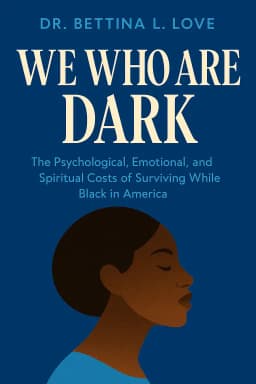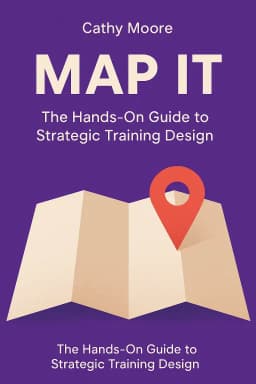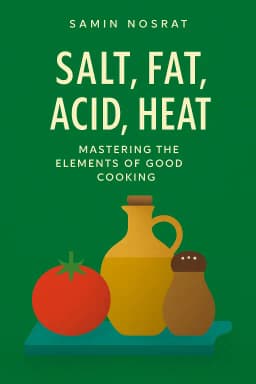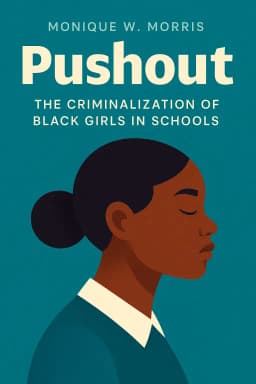
Sticky Learning: A Homeschooling Parent's Guide to Building a Brilliant Brain
Golden Hook & Introduction
SECTION
Dr. Celeste Vega: You spend hours teaching your child about, say, the life cycle of a butterfly. They can label the diagrams, they can tell you the story, everything seems perfect. But a week later, you ask them about it, and you get... a blank stare. That feeling of knowledge just vanishing, like writing in sand, is one of the most frustrating things for any parent or teacher. But what if that frustration isn't a sign of failure, but a misunderstanding of how our brains actually learn?
Autumn: That is the most relatable feeling in the world, Celeste. It happens all the time. You think you’ve had a breakthrough, a really successful lesson, and then poof, it's gone. It makes you question your whole approach.
Dr. Celeste Vega: Exactly. And that’s why I’m so excited to talk about the book 'Make It Stick: The Science of Successful Learning.' It argues that our most common learning habits are also the least effective. Today, we're going to tackle this from two angles with our guest, Autumn, a homeschooling parent who navigates these challenges every single day. First, we'll expose 'The Fluency Trap' and why easy learning is so forgettable.
Autumn: I have a feeling I've fallen into that trap many times.
Dr. Celeste Vega: We all have! Then, we'll uncover the power of 'Desirable Difficulties' and how making things a bit harder is the secret to making knowledge last. So Autumn, as someone who is both a teacher and a parent, you’re in the perfect position to explore this.
Autumn: I’m ready. I think every parent who has ever tried to help with homework needs to hear this. That feeling of knowledge just evaporating is universal.
Deep Dive into Core Topic 1: The Fluency Trap
SECTION
Dr. Celeste Vega: Autumn, that experience you described is so common, and it gets right to the heart of our first big idea: The Fluency Trap. Let's talk about a story from the book that I think will sound painfully familiar. It's about a first-year psychology student. He's in distress because he got a low grade on his first big test.
Autumn: Okay, I’m listening.
Dr. Celeste Vega: He tells his professor he did everything right. He attended every lecture, took detailed notes, read the textbook, and even highlighted all the critical passages. Before the test, he reviewed his notes and the highlighted sections over and over again until he felt he knew it all cold. He was familiar with everything. And yet, he failed to understand the material on the test.
Autumn: Oh, that's heartbreaking. It’s heartbreaking because he followed the exact playbook we're all taught. 'Just read it again. Go over your notes.' That's the advice everyone gives.
Dr. Celeste Vega: It is! And that's the trap. The book calls this an 'illusion of knowing.' Rereading and highlighting create a sense of fluency. The words become familiar, easy to read, and our brain mistakes that ease for mastery. But we haven't actually learned it; we've just become familiar with the text. It's like listening to a song on the radio a hundred times. You might recognize the tune, but that doesn't mean you can sing all the lyrics from memory.
Autumn: That’s a great way to put it. You feel like you know it, but when you’re put on the spot, there’s nothing there. So, if rereading is the trap, what’s the escape route?
Dr. Celeste Vega: The escape route is something called 'retrieval practice.' And there’s a fantastic study in the book that shows its power. Researchers worked with an eighth-grade science class. For some of the material, the students were given low-stakes quizzes. For another part of the material, they just reviewed it three times—the classic rereading method.
Autumn: Okay, so quizzing versus reviewing.
Dr. Celeste Vega: Exactly. A month later, they were all tested. The result was staggering. For the material they were quizzed on, the students averaged an A-minus. For the material they just reviewed, they averaged a C-plus. A full grade and a half difference.
Autumn: Wow.
Dr. Celeste Vega: That's the power of retrieval. It’s the act of actively pulling information of your brain, rather than just passively trying to shove it in. That act of pulling strengthens the memory, like lifting a weight strengthens a muscle.
Autumn: So this is fascinating. For a homeschooling environment, what does this 'retrieval practice' look like? We're not doing formal exams every day. Is it about asking questions?
Dr. Celeste Vega: Exactly! It can be as simple as, at the end of a lesson, saying, 'Tell me three things you learned about ancient Rome today.' Or turning it into a game, like a mini-Jeopardy. You could have them draw a concept from memory. The key is making them the information, not just re-consume it. It's micro-learning in action—short, frequent, and effortful.
Autumn: I love that. It feels much more active and engaging than just saying 'go look over your chapter.' It’s a conversation. It’s a creative act.
Deep Dive into Core Topic 2: Desirable Difficulties
SECTION
Dr. Celeste Vega: And this idea of making the brain to retrieve information leads us perfectly to our second, even more counterintuitive idea: that learning should feel hard. The book calls these 'Desirable Difficulties.'
Autumn: Desirable difficulties. That sounds like an oxymoron, but I'm intrigued. As a parent, my instinct is to make learning as easy and fun as possible.
Dr. Celeste Vega: And that's a wonderful instinct! But the science shows that when learning is too easy, it's like that writing in sand we talked about. It doesn't stick. The book gives a great example from the world of sports. Researchers took the Cal Poly university baseball team and split their batting practice into two groups.
Autumn: Okay.
Dr. Celeste Vega: One group did standard practice. They got 15 fastballs, then 15 curveballs, then 15 changeups. This is called 'massed' or 'blocked' practice. The other group got the same 45 pitches, but in a completely random, mixed-up order.
Autumn: I can already guess which group felt more frustrated during practice. The random one, for sure.
Dr. Celeste Vega: You're absolutely right. The random group struggled more. Their performance in practice was worse. But, at the end of the experiment, when they were tested, the group that practiced with random, interleaved pitches showed better hitting. The struggle itself—the difficulty of having to identify the pitch and adjust on the fly—is what built a deeper, more flexible skill.
Autumn: That's a fantastic analogy. I see that with music practice. Playing the same scale over and over feels productive, but mixing scales and chords is where the real skill develops. You're saying we should apply that to academic subjects, too?
Dr. Celeste Vega: Precisely. Instead of doing a block of math, then a block of history, maybe you do a little math, then a little history, then come back to a different kind of math problem. It forces the brain to work harder to load the right 'mental model,' and that effort is what makes the learning durable. And this connects to something you're interested in, Autumn: the story of Helen Keller. The book's notes mention a fascinating study.
Autumn: Oh, really? I'm all ears.
Dr. Celeste Vega: In the study, people read a passage about a girl named Carol Harris who was described as deaf, blind, and unable to speak. The name Helen Keller was never mentioned. But a week later, when asked about the passage, a significant number of people 'remembered' that the passage was about Helen Keller.
Autumn: Wow. So their prior knowledge of Helen Keller's story actually created a false memory.
Dr. Celeste Vega: Exactly. It's another kind of 'illusion of knowing.' But it shows how powerful our existing mental models and stories are. As an educator, it's a reminder that the context and stories we build around facts are just as important as the facts themselves. It can be a tool, but also a trap.
Autumn: That really resonates with my interest in empathy and storytelling. It means we have a responsibility to build accurate and rich narratives for our kids, because those narratives are what they'll use to make sense of new information.
Dr. Celeste Vega: And here's the final layer that ties it all together. The book talks about 'generation.' This is the idea of trying to answer a question or solve a problem you're shown the solution. Even if you get it wrong, that initial struggle to generate an answer makes the correct answer stick much, much better when you finally see it. The error you made wasn't a waste of time; it actually paved the way for learning. It created a space in your brain for the right answer to land.
Autumn: So, letting my child struggle with a math problem for a few minutes before I jump in to help isn't me being a bad teacher... it's actually a strategy. It's a desirable difficulty.
Dr. Celeste Vega: It's a fantastic strategy. You're encouraging them to build a growth mindset, to see effort and even mistakes not as a sign of failure, but as the very process of getting smarter.
Synthesis & Takeaways
SECTION
Dr. Celeste Vega: So, as we wrap up, we have two powerful, science-backed ideas that really turn conventional wisdom on its head. First, test yourself and your kids constantly in small ways to beat the fluency trap. Active retrieval is the key, not passive review.
Autumn: Right. Pull it out, don't just push it in.
Dr. Celeste Vega: Perfect summary. And second, embrace difficulty. Mix things up with interleaving, and don't be afraid of errors. Frame struggle as the path to mastery, because that's where the true, durable learning happens.
Autumn: It really reframes the whole goal. The goal isn't an easy, tear-free lesson. The goal is learning that lasts.
Dr. Celeste Vega: Exactly. So, Autumn, as our resident expert in the trenches, what's one practical piece of advice you'd give to other parents listening today, based on what we've discussed?
Autumn: I think it's about changing our language. As a parent, my challenge to you is this: for one week, ban the phrase 'go study that again.' Instead, try asking, 'Can you teach me about that?' or 'What was the most confusing part of that for you?' Shift the focus from reviewing to retrieving and reflecting. It changes the dynamic from a chore to a conversation, and it puts these powerful learning principles into practice in a really simple, human way. I think you'll be amazed at the difference.









